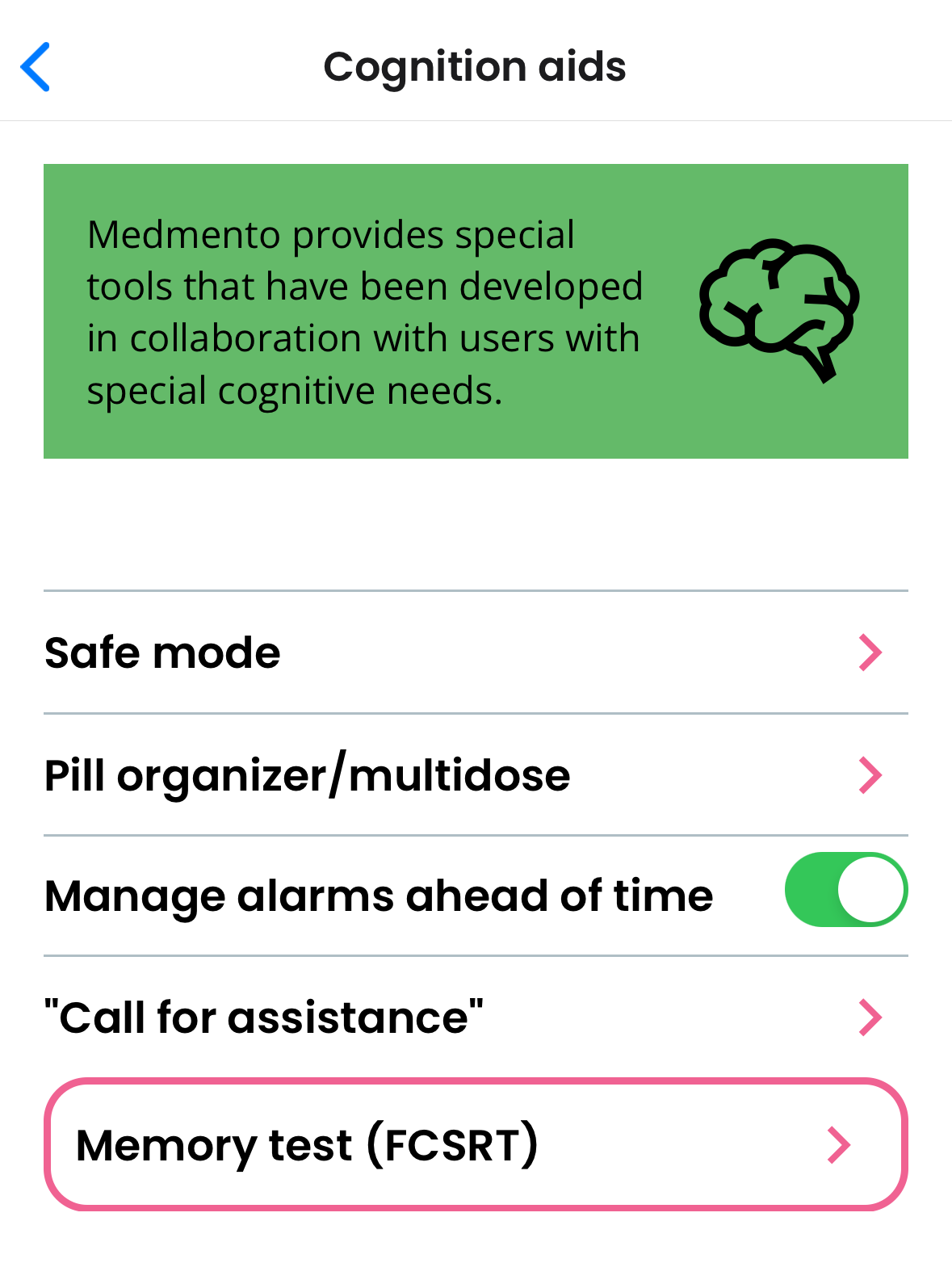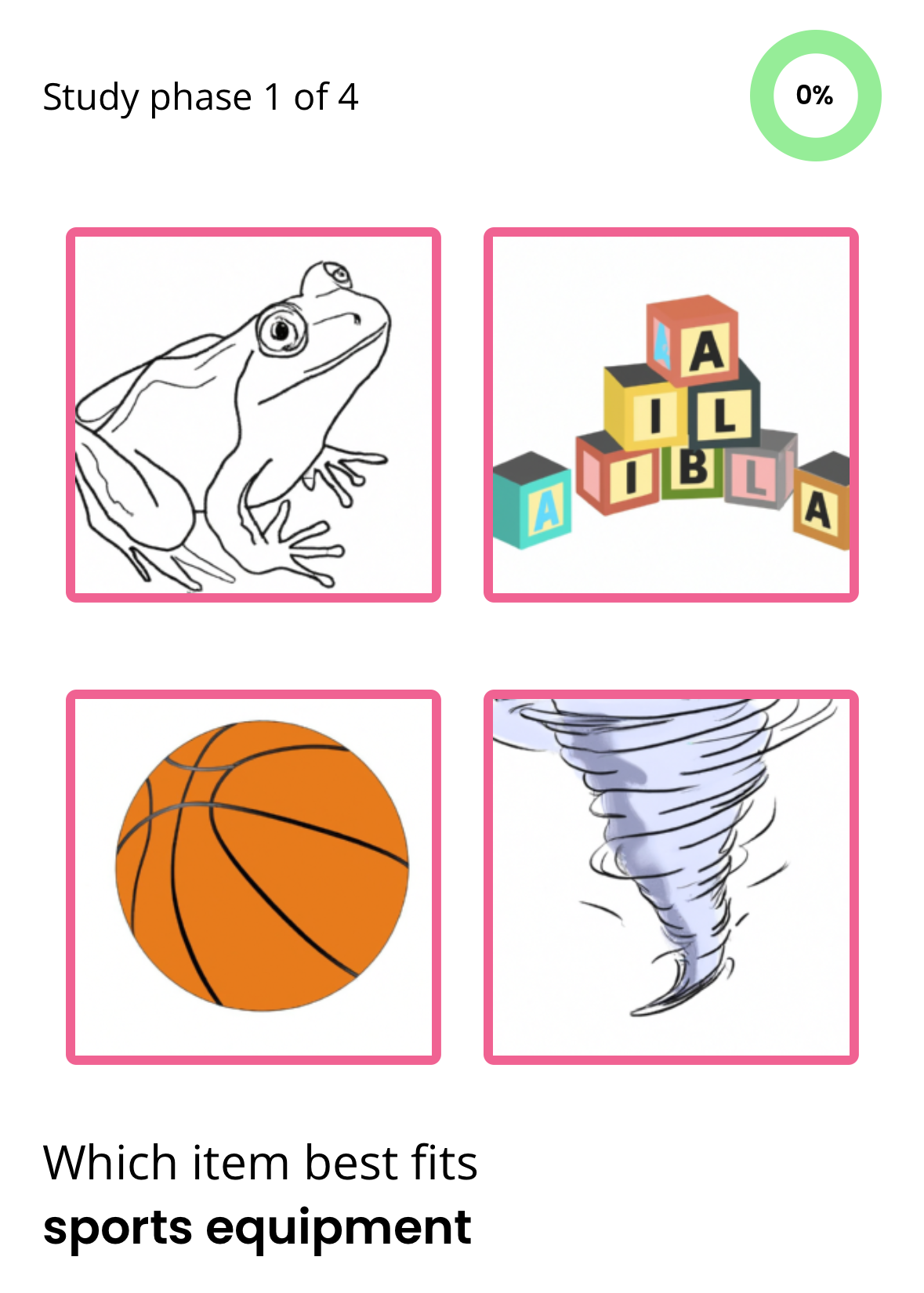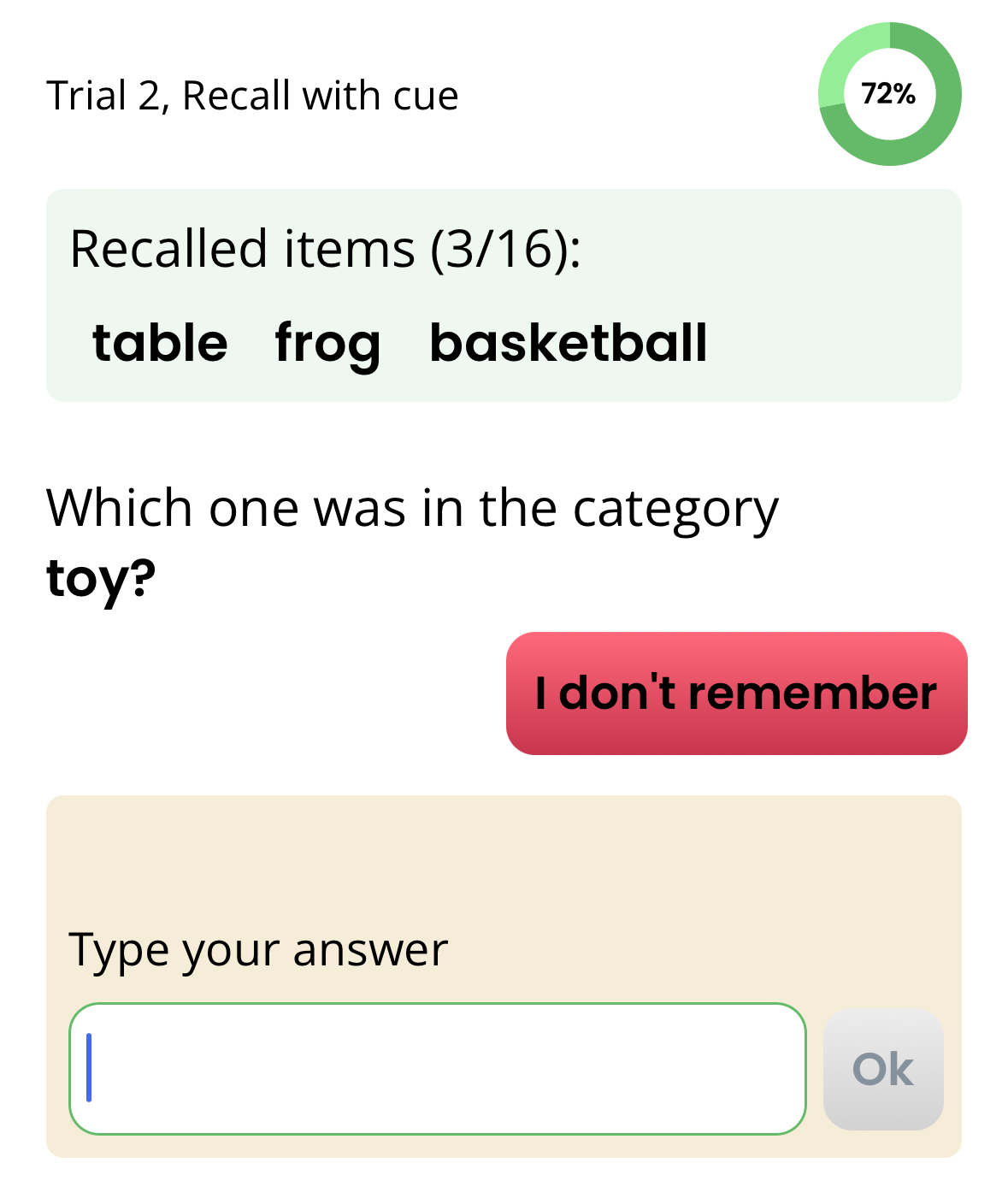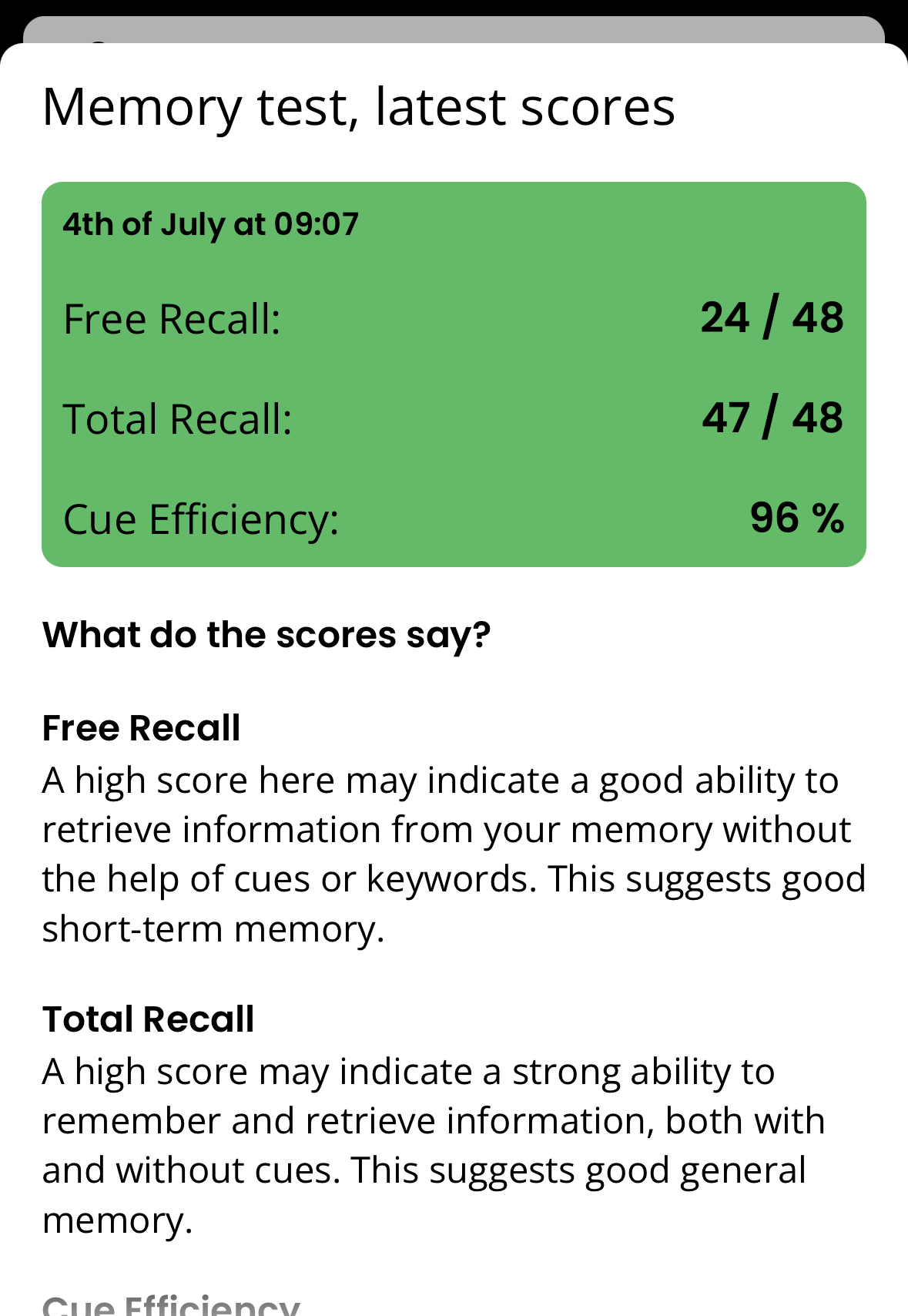Cognition aids: The Medmento Memory Test
The Medmento Memory Test is a variant of the Free and Cued Selective Reminding Test, FCSRT, with pictures.(*)
The FCSRT is a renowned neuropsychological test that measures your ability to learn and retain new information. The test has proved to be sensitive to early signs of memory decline, and is often used by professionals to evaluate individuals with suspected mild cognitive impairment or dementia.
The Medmento test presents you with a series of pictures. You are asked to remember the pictures and recall them later. You will be given hints to help you remember the pictures you were unable to recall on your own.
The test can provide a picture of your memory strengths and weaknesses. For example, it can show whether you have difficulty remembering new information or whether you have difficulty recognizing things you have seen before.
The test can be accessed from the "Cognition aids" menu in the Medmento app:

In this phase, a series of objects must be categorized correctly into their correct categories, teaching you the cues that may help you later in recalling all the objects later.

In the next phase, free recall, you are asked to remember as many of the objects as possible without cues.
In this phase, for all the objects you were unable to remember in the free recall phase, you will be given a cue helping you to try to remember them all.

After completing three rounds of free and cued recall, you will receive your scores.

- Reduced anxiety: Uncovering the cause of any changes can be a relief. Early detection helps you understand what's happening and allows for open communication and planning, reducing stress and anxiety.
- Maximizing treatment effectiveness: Starting treatment sooner ensures that you receive the benefits of available options as early as possible. This can lead to improved outcomes and a better quality of life.
- Empowered decisions: Knowing the diagnosis early gives you a voice in your care plan, allowing you to choose the treatment options that best suit you and your family. It can also provide ample time to make informed decisions about future care, transportation, living arrangements, and financial and legal matters.
- Building a strong support system: Early diagnosis provides more time to develop strong relationships with doctors, specialists, and caregivers. This network can offer invaluable guidance and support throughout the journey.
- Contributing to medical advancements: Early detection may allow you or your loved one to participate in clinical trials, helping researchers develop new and more effective treatment options.
Available for iOS and Android
Want to know more about the memory test?
Write to us at contact@medmento.com
* The Medmento test is not a complete substitute for a standard FCSRT test administered by a professional. The Medmento test has not undergone a thorough evaluation to compare it to standardized tests. Therefore, the results from the Medmento test cannot be used to draw any conclusions about your cognitive function. However, the test can be useful for gaining an understanding of how an FCSRT test works and for seeing how you perform on such a test. If you are concerned about your memory, it is important to contact your doctor. Your doctor can provide you with a comprehensive assessment of your cognitive function and refer you to a specialist if necessary.
